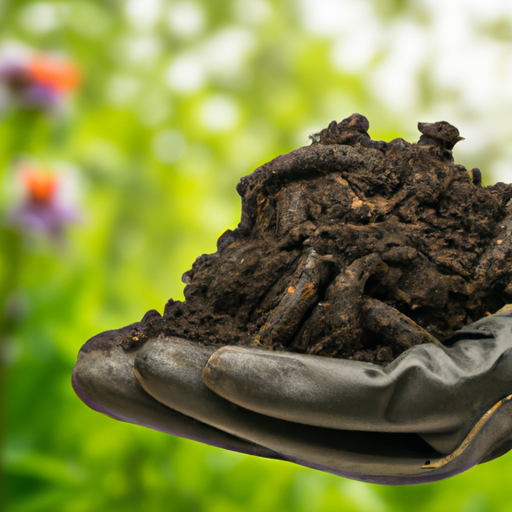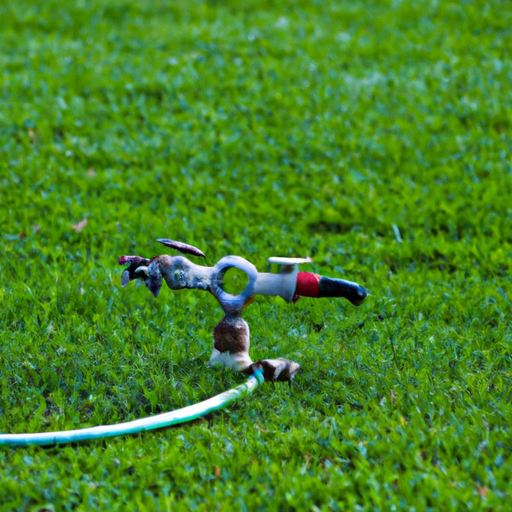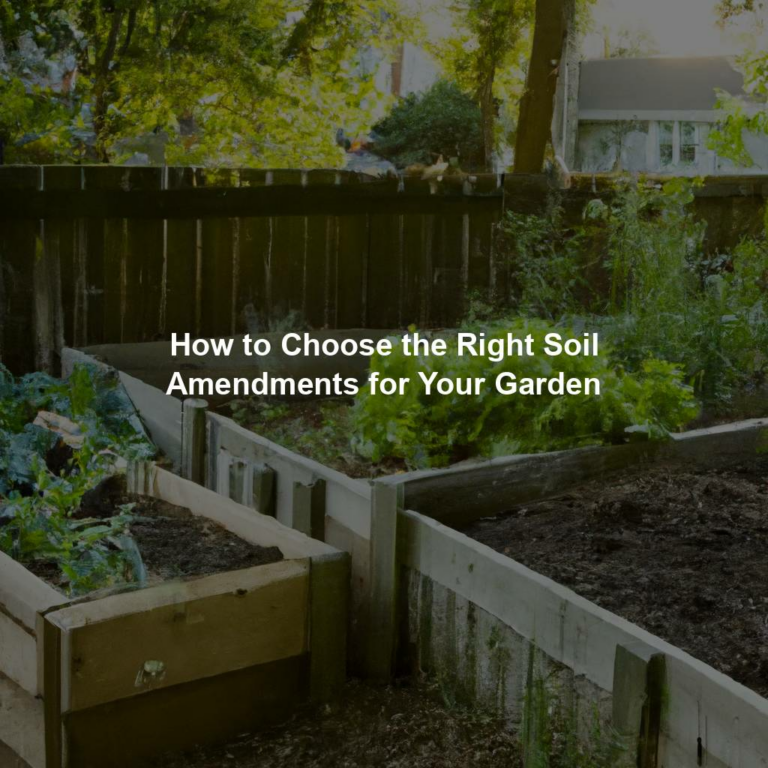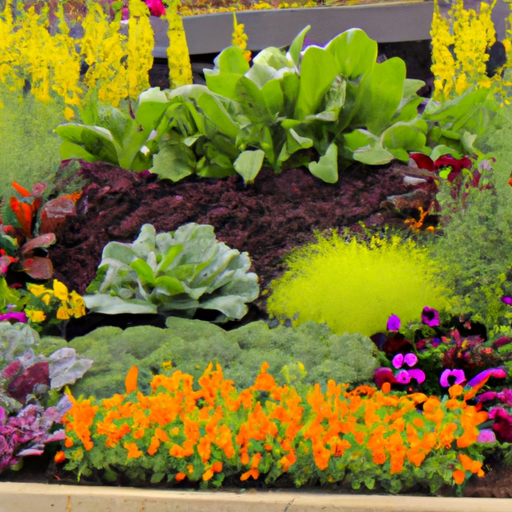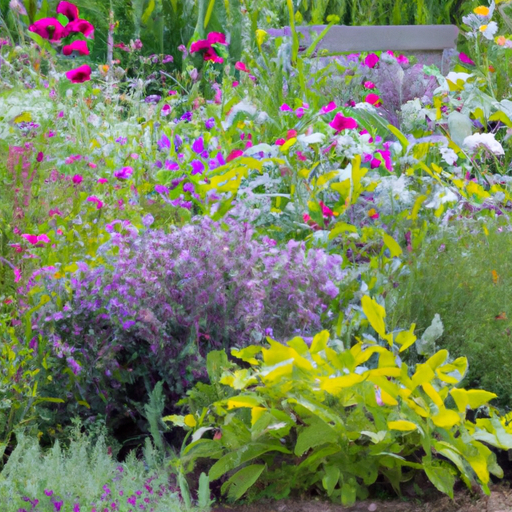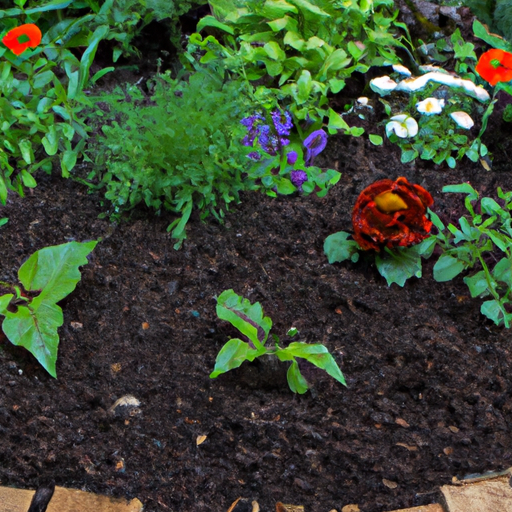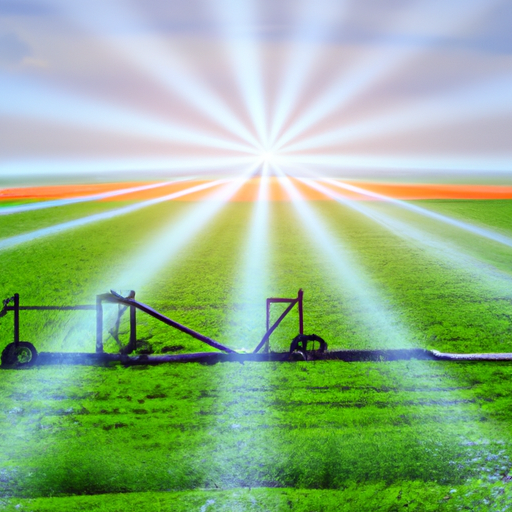Hey there, fellow gardeners! As a Master Gardener, I’m often asked what the secret is to having perfect soil in your garden. Well, let me tell you, it’s not just one thing – it’s a combination of factors that work together to create healthy and fertile soil.
Firstly, it’s important to understand that soil is more than just dirt – it’s a complex ecosystem teeming with microorganisms, fungi, and other living organisms. These tiny creatures play an essential role in breaking down organic matter and releasing nutrients into the soil for plants to absorb.
So if you want to have great soil, you need to take care of these little guys too. In this article, we’ll explore some of the key secrets to creating perfect garden soil that will help your plants thrive year after year.
Understanding The Soil Ecosystem
Have you ever wondered what makes soil healthy for your garden?
It all comes down to understanding the soil ecosystem.
Soil biology plays a crucial role in creating an environment where plants can thrive.
The tiny, unseen world of soil microorganisms helps break down organic matter and releases nutrients that are essential for plant growth.
These microorganisms work tirelessly to create a balance in the soil, keeping it nutrient-rich and improving its structure over time.
As a Master Gardener, I can attest to the importance of nurturing this delicate system if you want to achieve perfect garden soil.
By understanding and respecting the life beneath our feet, we can lay the foundation for a thriving garden without relying on synthetic fertilizers or harmful chemicals.
Soil Composition: The Building Blocks Of Healthy Soil
Understanding the soil ecosystem is crucial to creating a healthy and thriving garden. Now that you know how important it is to take care of your soil, let’s dive into the building blocks of healthy soil: its composition. A good understanding of what makes up your soil will help you determine how best to amend it for optimal plant growth.
One key factor in this is determining the pH levels of your soil – whether it is acidic or alkaline, as certain plants thrive better in different pH ranges. Another critical aspect is ensuring your soil has an adequate amount of organic matter content. Organic matter provides essential nutrients and improves overall soil structure, allowing roots to grow more efficiently and retain moisture longer.
To drive home these points further, here are five items to keep in mind when considering the composition of your garden’s soil:
– Test your soil regularly to determine its pH level.
– Different plants require varying degrees of acidity or alkalinity; research which range suits each crop best before planting.
– Aim for at least 5% organic matter content in your soil – composting can be a great way to achieve this!
– Organic materials such as leaves and grass clippings break down over time and add vital nutrients back into the earth.
– Mulching around plants can also provide numerous benefits by reducing weed growth while retaining moisture and adding organic material back into the ground.
As a Master Gardener, I cannot stress enough how fundamental proper composition is for establishing ideal growing conditions for all sorts of plants. Take some time to assess what type of soil exists within your property so that you may adjust accordingly with amendments like fertilizers or composts.
Remember that every plant requires specific conditions; therefore, knowing how much pH balance they need or what kind(s) of organic matter should get incorporated during cultivation helps optimize yields from season-to-season without worrying about having too little nutrition available due simply because someone didn’t put enough thought into their gardening strategy!
Improving Soil Structure And Texture
Ahoy there fellow green thumbs!
Now that we’ve talked about the importance of organic matter in soil, let’s dig a little deeper into improving its structure and texture.
One way to do this is by incorporating composting benefits into our gardening practices. Composting not only adds necessary nutrients to the soil but also helps improve drainage and water retention.
Another crucial factor to consider is soil pH levels. Most plants prefer slightly acidic soil with a pH between 6 and 7, so it’s essential to test your soil regularly and adjust accordingly using natural amendments such as coffee grounds or lime.
By taking these steps, we can ensure our garden beds are healthy, robust, and ready for bountiful harvests without ever having to resort to chemical fertilizers or pesticides.
Keep up the good work, my friends!
Balancing Soil Nutrients For Optimal Plant Growth
As a Master Gardener, it’s important to understand the importance of balancing soil nutrients for optimal plant growth.
Before adding any amendments to your soil, it’s essential to conduct nutrient testing to determine which nutrients are lacking and which ones are abundant in your soil.
Once you have identified the deficiencies in your soil, it’s time to add soil amendments that will balance out these nutrients.
Common soil amendments include compost, manure, bone meal, and blood meal.
However, before applying any amendments, make sure to read the labels carefully and follow the instructions provided by the manufacturer.
Over-application can lead to imbalances in other nutrients or even damage to your plants.
By regularly testing and amending your soil with appropriate products, you’ll be able to create a balanced environment for your plants to thrive without relying on chemical fertilizers or pesticides.
Maintaining Soil Health And Fertility
Now that we know how to balance soil nutrients for optimal plant growth, let’s focus on maintaining the health and fertility of our garden soil.
As Master Gardeners, we understand the importance of using natural methods to achieve this goal.
One of these methods is composting, which involves converting organic waste into a nutrient-rich fertilizer that can be added back into the soil.
There are several composting techniques you can use depending on your space and needs, such as vermicomposting or hot composting.
Additionally, there are various natural soil amendments you can incorporate into your soil to boost its health and fertility, such as bone meal or kelp meal.
By regularly incorporating these practices into our gardening routine, we can ensure our plants have access to all the necessary nutrients they need to thrive in perfect garden soil.
Frequently Asked Questions
What Are Some Common Myths About Garden Soil That People Often Believe?
As a Master Gardener, it’s important to dispel some common myths about garden soil that people often believe.
One of the biggest misconceptions is that you don’t need to test your soil before planting. Soil testing is crucial in determining what nutrients and pH levels are present in your soil, which can greatly affect plant growth and health.
Another myth is that adding more fertilizer will solve any problems with poor soil quality. However, too much fertilizer can actually harm plants and lead to nutrient imbalances. Instead, consider using soil amendments such as compost or organic matter to improve soil structure and increase nutrient availability for plants.
By understanding these truths about garden soil, you can create a thriving and healthy garden environment for all of your plants to grow in.
How Can I Tell If My Soil Is Lacking Certain Nutrients?
Are your plants showing signs of stunted growth or yellowing leaves? It’s possible that your soil is lacking certain nutrients.
The first step in determining which nutrients are missing is to conduct a soil test. Soil testing can reveal the pH level and nutrient levels in your soil, allowing you to make informed decisions about what amendments to add.
Additionally, it’s important to be able to identify common nutrient deficiency symptoms. For example, if your plants have pale leaves with green veins, they may need more iron.
As a Master Gardener, I recommend regularly testing your soil and keeping an eye out for any signs of nutrient deficiencies to ensure healthy plant growth.
Can I Use Compost From My Kitchen Scraps To Improve My Garden Soil?
Yes, you absolutely can use compost made from your kitchen scraps to improve your garden soil!
Composting benefits the health of your plants in numerous ways, such as adding nutrients like nitrogen and phosphorus back into the soil.
Kitchen scrap compost is a great way to start using organic matter as fertilizer for your plants.
Soil amendment techniques like this are simple yet effective at not only improving soil quality but also reducing waste.
Just be sure to follow best practices when making and applying compost, such as avoiding meat and dairy products and allowing proper time for decomposition before use.
What Are Some Natural Ways To Control Pests And Diseases In My Garden Without Harming The Soil?
As a Master Gardener, I understand the importance of maintaining healthy soil in your garden. But what about those pesky pests and diseases that can wreak havoc on all your hard work?
Fear not! There are natural ways to control these nuisances without harming the very foundation of your garden – the soil.
By attracting beneficial insects such as ladybugs and lacewings through companion planting, you’ll create an ecosystem where they thrive and help keep unwanted visitors at bay.
So don’t let pests and disease deter you from creating a beautiful and bountiful garden – embrace nature’s solutions with open arms!
How Much Water Should I Be Giving My Plants Based On The Type Of Soil I Have?
To ensure optimal watering for your plants, it’s important to consider the type of soil you have.
Sandy soils drain quickly and require more frequent watering, while clay soils hold onto moisture longer and require less frequent watering.
One tool that can help determine when to water is a soil moisture meter, which gives an accurate reading of how much moisture is in the soil.
It’s also important to remember that overwatering can be just as detrimental as under-watering, so it’s best to monitor your plants’ needs regularly and adjust accordingly.
Conclusion
In conclusion, proper soil management is vital for a thriving garden. By debunking common myths about garden soil and understanding the importance of nutrient balance, you can ensure your plants have the best foundation to grow.
Utilizing compost from kitchen scraps is an effective way to add nutrients back into your soil without breaking the bank.
Furthermore, natural pest control methods such as companion planting and introducing beneficial insects not only keep pests at bay but also preserve the health of your soil.
Remember that different types of soils require different amounts of water, so it’s crucial to do some research beforehand or consult with a Master Gardener like myself.
With patience, dedication, and these secrets to perfect garden soil, you’ll be on your way to cultivating a beautiful and bountiful garden in no time!
